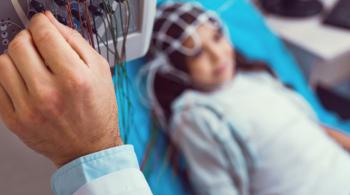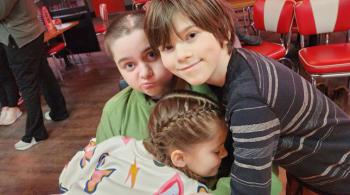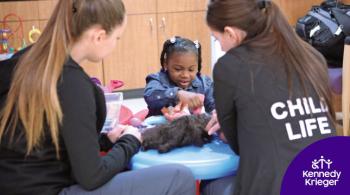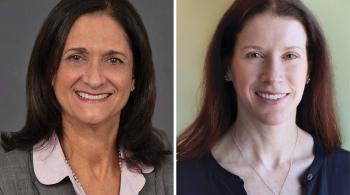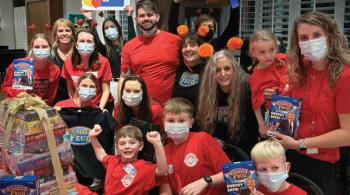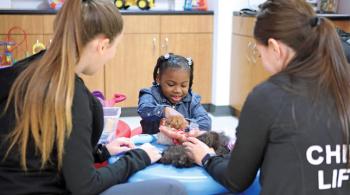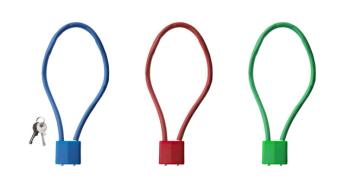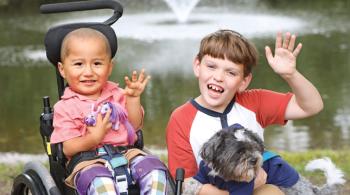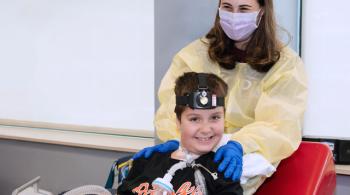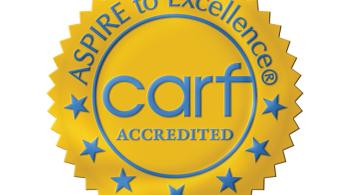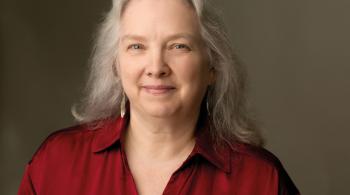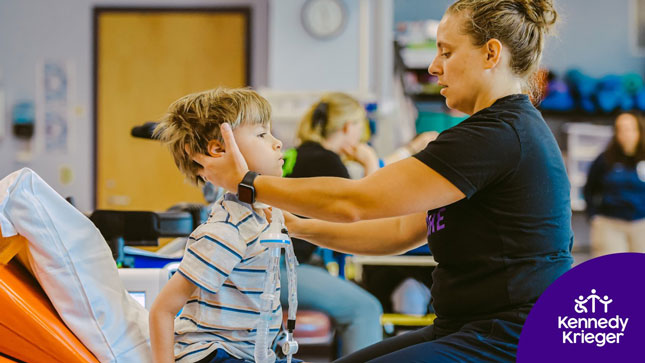
By Dr. Bradley L. Schlaggar, President and CEO, Kennedy Krieger Institute
“In a perfect world, I should never have heard of Kennedy Krieger.”
These words, spoken by the parent of a patient, capture the emotional gravity of what we do at Kennedy Krieger Institute. No one expects their child to need intensive neurorehabilitation. But when the unimaginable happens—a brain hemorrhage, a spinal cord injury, a life-altering cancer diagnosis—families are thrust into a world they never anticipated. That’s when they find us.
At Kennedy Krieger, we see families at some of the most difficult crossroads of their lives. In those moments, our inpatient neurorehabilitation program is more than a hospital stay; it’s a source of healing, resilience, and hope. “We meet families where they are—emotionally and practically—offering support, not just information,” says Dr. Nancy Yeh, Medical Director of the Pediatric Comprehensive Neurorehabilitation Unit. This intensive rehabilitation course, she notes, is a vital step as patients and their families begin what might be a long and arduous care journey.
Compassionate and Expert Care
Since 1979, our inpatient unit has served children and young adults—from newborns to those in their 20s—recovering from brain and spinal cord injuries, neurosurgical treatment of epilepsy and cancer, surgical interventions for cerebral palsy, and myriad other complex neurological conditions. Inpatient care for children and adolescents with complex medical conditions at Kennedy Krieger also includes feeding disorders and severe behavioral disorders, topics which we will cover in future articles.
Each year, an estimated 20,000-30,000 children in the U.S. require inpatient rehabilitative care. At Kennedy Krieger, we are proud to be one of the few institutions equipped to meet that demand with both compassion and clinical excellence. Many of our patients arrive with chronic, complex medical needs—ventilators, feeding tubes, or multiple diagnoses.
Some stay with us for weeks; others, for months, with the average stay of about seven weeks. Importantly, with the profound advances in the acute care of pediatric patients over the past several decades, more children are surviving what would have been life-ending injuries, genetic conditions, and rare diseases. Very often, that survival comes with chronic and complex medical conditions requiring the very clinical expertise we have at Kennedy Krieger.
For example, we treat patients with Acute Flaccid Myelitis (AFM), a rare but serious neurological condition, primarily in children, that resembles poliomyelitis with paralysis. Twenty percent of these patients with AFM need ventilatory support, and we are one of the few facilities that have the expertise to care for these patients. Kennedy Krieger has become a beacon for families seeking support and answers; our patients travel from across the U.S. and abroad to access the Institute’s specialized care.
What a Stay Involves
What sets Kennedy Krieger’s inpatient care apart is our truly interdisciplinary and comprehensive approach, including pediatric subspecialty physician care in physiatry, neurology, neurodevelopmental disabilities, psychiatry, developmental pediatrics, and many other relevant disciplines. Our psychologists and neuropsychologists also help support our patients and families. Along with therapies, these psychology disciplines play an integral part in many of our programs, including our disorders of consciousness program.
Patients receive intensive therapies—physical, occupational, speech and language, as well as music and art therapy. Every therapy session is a step toward optimizing cognitive and functional outcomes, restoring what was lost, and discovering what remains possible.
Recognizing that hospitalization can be a distressing experience for children, our Child Life and Recreation Therapy team is dedicated to supporting young patients through every step of their care journey. Child Life supports patients during procedures and provides sibling support. Recreation therapy takes each patient’s therapy goals and finds fun ways to work to achieve them.
Here for Our Patients and Their Families
Families also play a vital role in a patient’s recovery. We equip families with the training and support needed to continue care at home. When it’s time for a patient to transition back home, our outpatient and day hospital programs help sustain and build on the progress made during their inpatient rehabilitation stay.
At Kennedy Krieger, we don’t just treat injuries, we help children reclaim their lives. We help families rediscover hope. While no parent ever wants to need us, we are here when they do.


